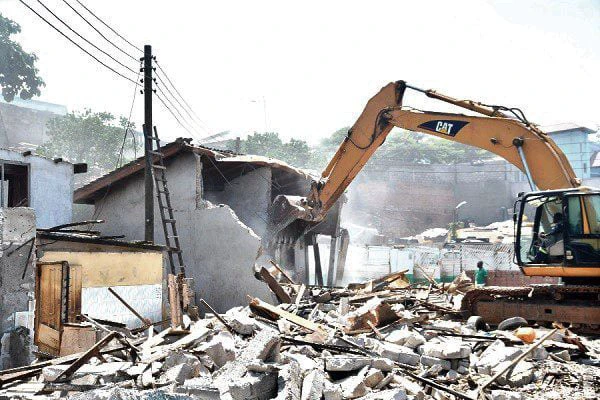President John Dramani Mahama has issued a directive for the immediate demolition of all structures built on waterways in the Mallam Junction area of the Weija Gbawe Municipality. The move aims to address the perennial flooding that has caused severe damage to property and claimed lives in the community.
The President’s order follows an inspection tour of flood-prone areas in Accra, where he met with city engineers, municipal officials, and residents to assess the crisis. Expressing grave concern over unchecked construction in natural drainage paths, Mahama questioned why authorities permitted such developments despite the clear risks.
“The assembly here, how did you sit and allow this to happen? How did the assembly allow this to happen? And that is why you have the chief executive, have assembly members. They must be conscious of all this. These are waterways. Can you imagine the volume of water that this place alone can hold when it rains?” Mahama demanded.
“And so if you fill it up and you say there should just be a drain passing through, the drain cannot contain that water. And so let’s do what we have to do. They should remove all these.”
Flooding remains a major challenge in Accra, particularly in low-lying areas such as Mallam Junction, Weija, Odawna, Kaneshie, and Circle. Experts attribute the problem to poor drainage systems, rampant waste disposal, and—most critically—illegal construction on floodplains and waterways.
Despite past demolition exercises and repeated warnings, unauthorized structures continue to obstruct natural water flow, worsening floods during heavy rains. Residents and environmental advocates have long called for stricter enforcement of zoning laws and sustainable urban planning to prevent further disasters.

President Mahama’s directive underscores the need for greater oversight by local authorities to prevent future encroachments. His remarks also highlight the broader challenge of balancing urban expansion with environmental safeguards—a dilemma that persists in rapidly growing cities across Ghana. Watch the video here
As demolition preparations begin, affected residents await further details on potential relocation plans or compensation. Meanwhile, the government faces mounting pressure to implement long-term solutions that go beyond reactive measures, ensuring Accra’s resilience against future flooding.











